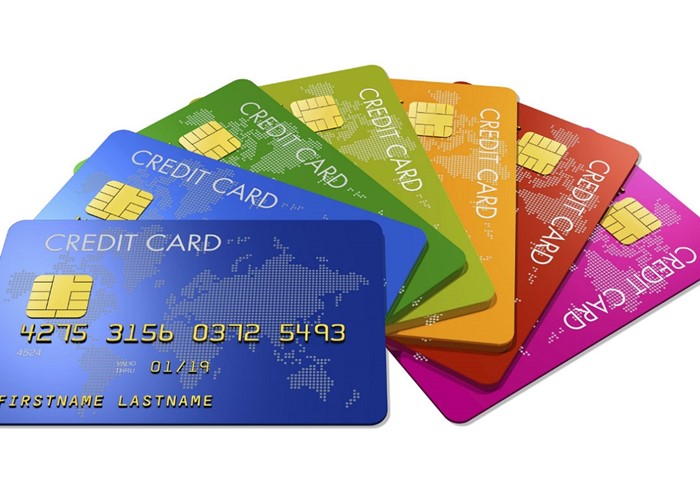Virgin unveils amazing new balance transfer card

The balance transfer market hots up with yet another great new card.
Despite the issues of the last few years, the British love affair with plastic credit lives on. According to the latest figures from Credit Action, each day an incredible 24.1 million transactions are made with the use of a card, with a total value of £1.156bn.
And while some borrowers are disciplined and pay off their bill in full each month, many more of us are walking around with a stack of debt piling up on our cards, with interest charges building up on top.
One smart solution to credit card debt is a 0% balance transfer card. As the name suggests, you transfer your debt over to a new card, which offers 0% interest on that debt for an allotted period. Over the last six months or so we have seen fierce competition in this market, with providers offering longer and longer 0% periods.
And now Virgin has stolen a march on its competitors with a new card that sets it head and shoulders above the rest.
The Virgin Money Credit Card
Virgin’s credit card now offers borrowers a whopping 19 months free of interest on any balance transferred over to it.
A couple of years ago, Virgin was long the market-leader when it came to balance transfer cards, because it offered 16 months interest-free. At the time, this was head and shoulders above the competition.
The fact that other providers have since stepped up to the challenge has been brilliant news for borrowers, as it gives them a little more breathing space, a little more time to spread those payments and get that debt cleared before they reach the end of the 0% period.
Related how-to guide

Pay off your credit card debts
How to destroy your credit card debt quickly and effectively.
See the guideOf course, while Virgin’s card now offers more than a year and a half free of interest, it still doesn’t actually offer the longest interest-free period. Instead, Barclaycard offers a mighty 20 months on its Platinum card.
So why is the Virgin card better than Barclaycard’s current offering?
A question of fees
With the Barclaycard Platinum, when you transfer over your debt, you will pay a fee of 3.2% of the sum transferred.
So if you transfer over, say £5,000, that’s a fee of £160 that will be added onto your card debt. Not a huge sum compared to £5,000 debt, but a considerable fee all the same.
Now with the Virgin card, the fee you will have to pay on the debt you transfer is just 2.49%, much smaller than the 3.2% charged by Barclaycard. So on a £5,000 balance transfer, the fee you will need to shell out is just £124.50, saving you more than £35. Not a saving to be sniffed at!
And obviously, the larger the debt that you need to transfer onto the card, the more significant that saving will be.
A competitive market
It would be foolish of me to focus solely on these two cards, as there is currently a brilliant array of balance transfer deals out there to choose from. This is particularly important as you can’t transfer debt between cards from the same provider – in other words, if you have debt on a Barclaycard, you can’t move it to another Barclaycard. So it’s really useful to have so many different providers offering such excellent cards.
Here are the current top ten cards in the market:
|
Card |
0% interest period |
Transfer fee |
|
20 months |
3.2% |
|
|
19 months |
2.49% |
|
|
19 months |
2.5% |
|
|
19 months |
2.9% |
|
|
18 months |
2.8% |
|
|
18 months |
2.8% |
|
|
18 months |
3% |
|
|
17 months |
2.95% |
|
|
17 months |
3% |
|
|
17 months |
2.9% |
That’s an incredible number of cards offering pretty similar deals. Personally I really like the small fee you will have to hand over with the Virgin card, though it’s worth remembering that the extra month afforded by the Barclaycard can make all the difference.
With the £5,000 debt example I used before, and taking the fee into account, in order to pay off the debt before you reach the end of the interest-free period you would need to pay £258 each month with the Barclaycard. With the Virgin card, that would jump to just shy of £270 a month.
A low rate for life
For some borrowers, 20 months is just not long enough to clear their debt. And once the 0% period ends, they will then need to find a new home for that debt, with a balance transfer fee to take into account on top. It can work out as an expensive hassle.
Instead, you may prefer to go for a card which offers a low rate of interest for the entire life of the card. For more about these clever cards, have a read of The credit card that beats 0% cards.
More: Compare credit cards | The biggest life insurance mistake | Buy a house with a 10% deposit
Comments
Be the first to comment
Do you want to comment on this article? You need to be signed in for this feature